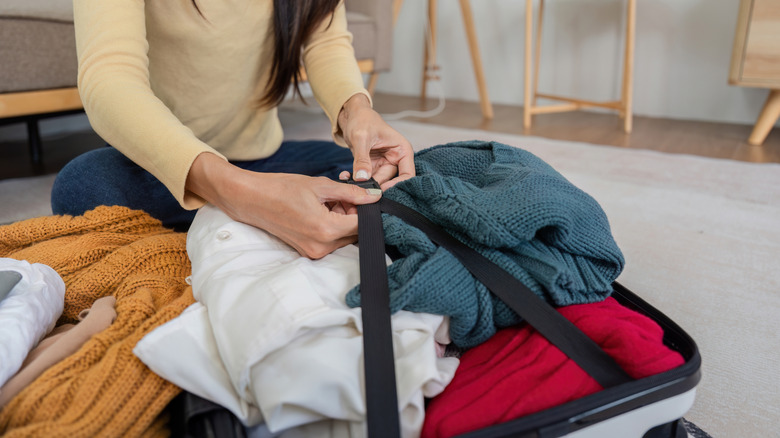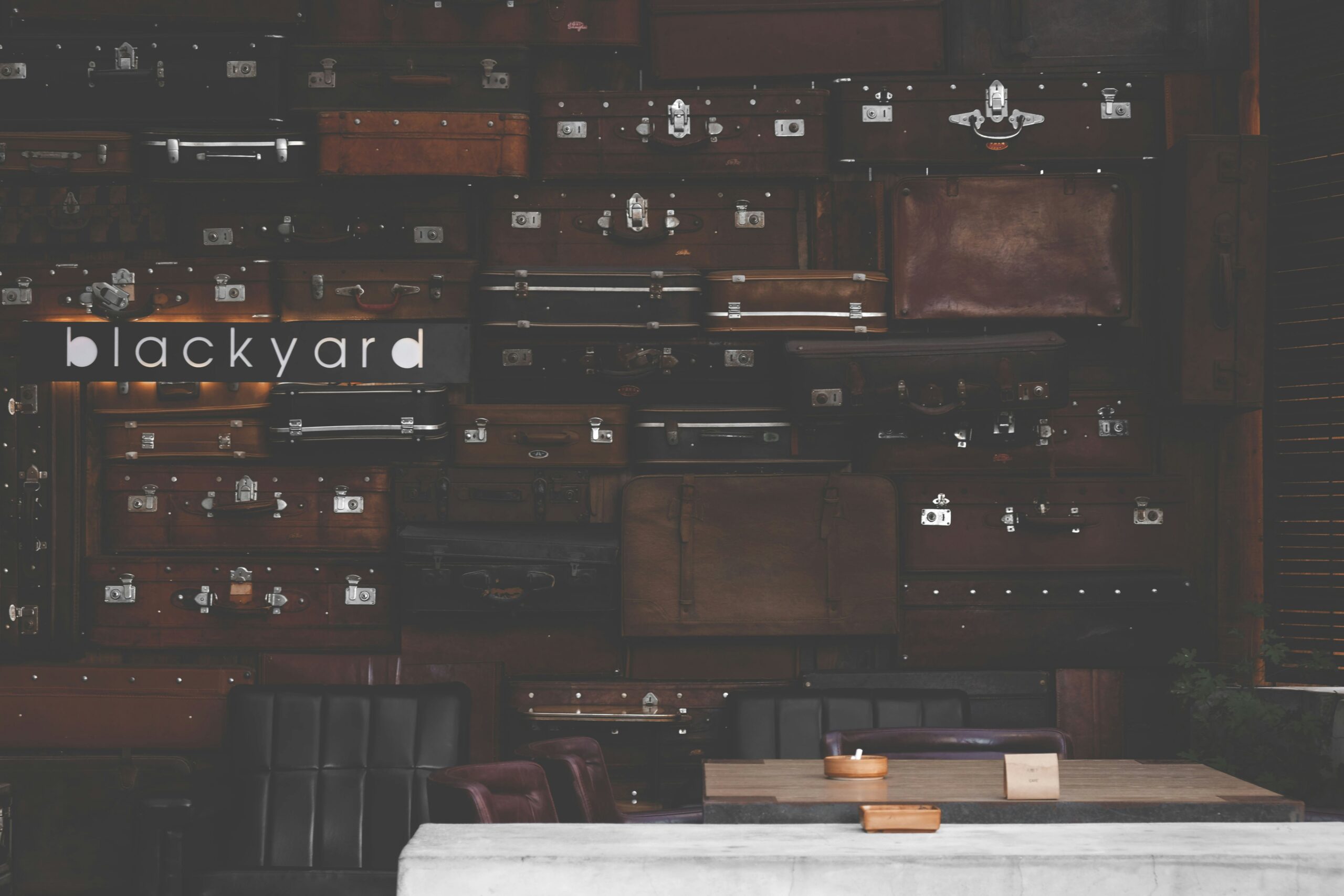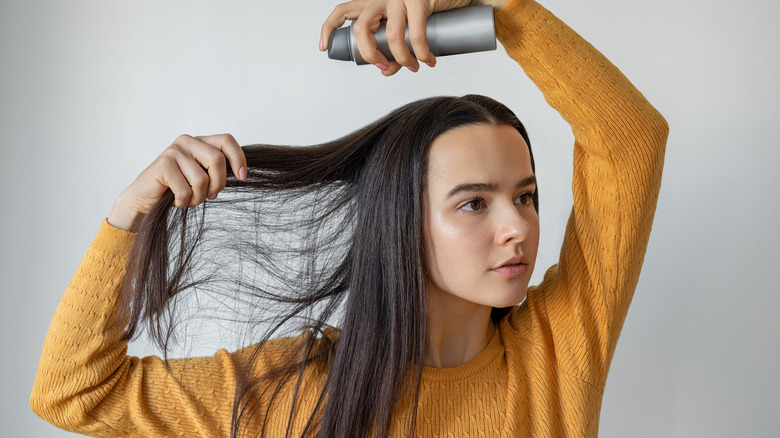travel inspira Luggage Scale, Portable Digital Hanging Baggage Scale for Travel, Suitcase Weight Scale with Rubber Paint, 110 Pounds, Battery Included
$7.80 (as of April 20, 2025 04:48 GMT +00:00 - More info)Have you ever wondered whether peanuts are allowed on planes these days? After all, they’ve been such a traditional snack for so long. The situation surrounding peanuts on flights has indeed changed, and who better to give us the lowdown than an experienced flight attendant? Let’s get into the specifics of whether you can eat peanuts on a plane and what you need to know about peanut allergies in aviation.
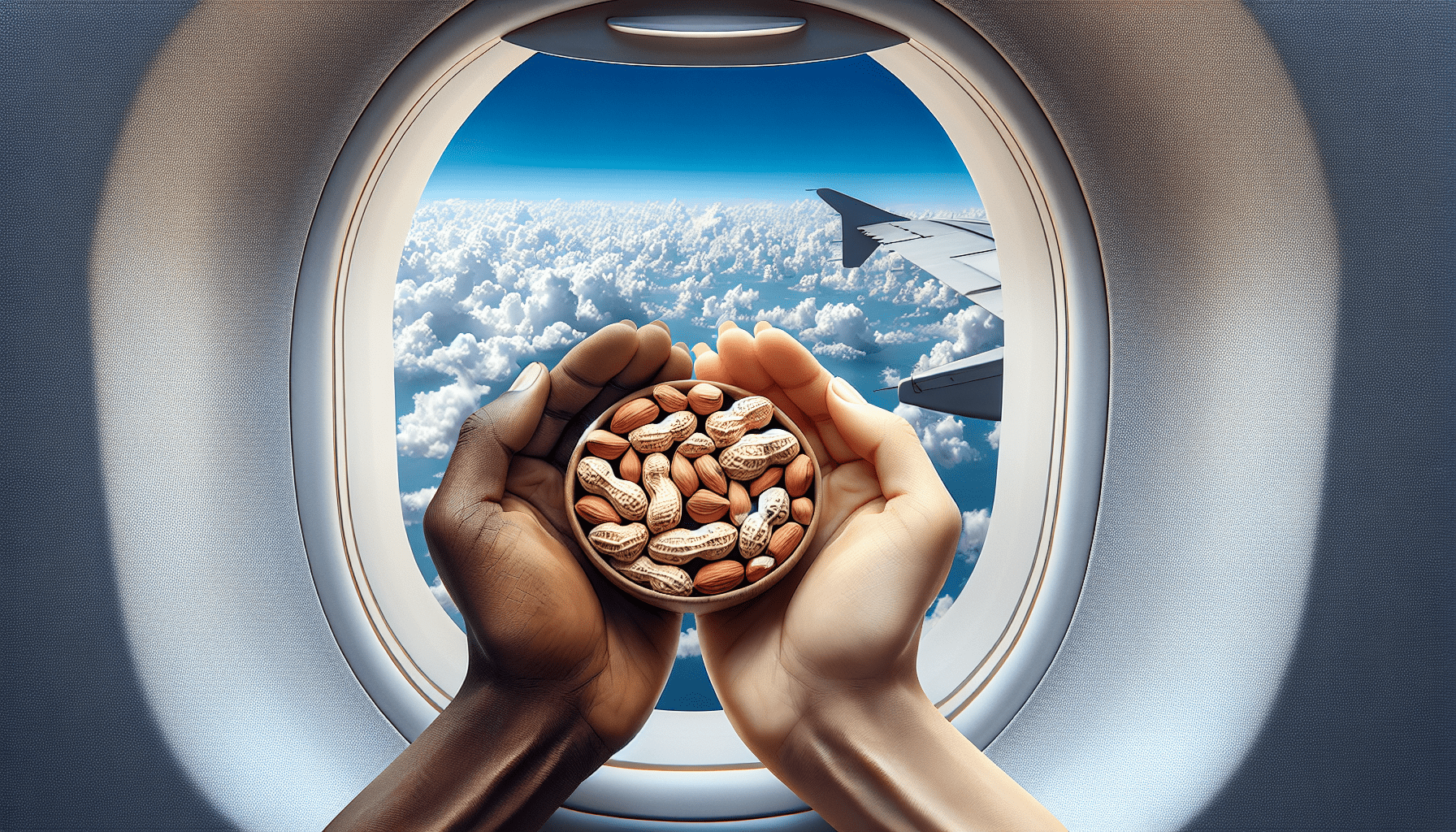
Shop These Accessories for a Comfortable Trip
Why Peanuts on Planes Became a Hot Topic
Commercial aviation once had a long-standing tradition of serving peanuts. For many, the air travel experience wasn’t complete without those small, salty packets. However, the rising awareness of peanut allergies has changed this custom, sparking debates and concerns for both passengers and airlines.
The Shift Away from Peanuts
Many airlines have switched from peanuts to snacks like pretzels and cookies. The reason? Severe peanut allergies can cause life-threatening reactions in some passengers. The change aimed to create a safer environment, but questions remain about what you’re allowed to bring on board.
Can You Bring Your Own Peanuts?
Surprisingly, while airlines may not serve peanuts, you’re generally allowed to bring your own. Barbi, a journalist and veteran flight attendant with nearly 40 years of experience, tells us that “airlines cannot guarantee a nut-free flight as meals and snacks may contain nut or peanut oil, let alone control what other passengers bring on board to eat or snack on.”
What the Airlines Say
Most airlines don’t volunteer that their in-flight meals are completely nut-free. This means it’s up to you to take precautions if you have or are concerned about peanut allergies. Your airline might not offer much in the way of preventive measures, so knowing what’s advisable is critical.
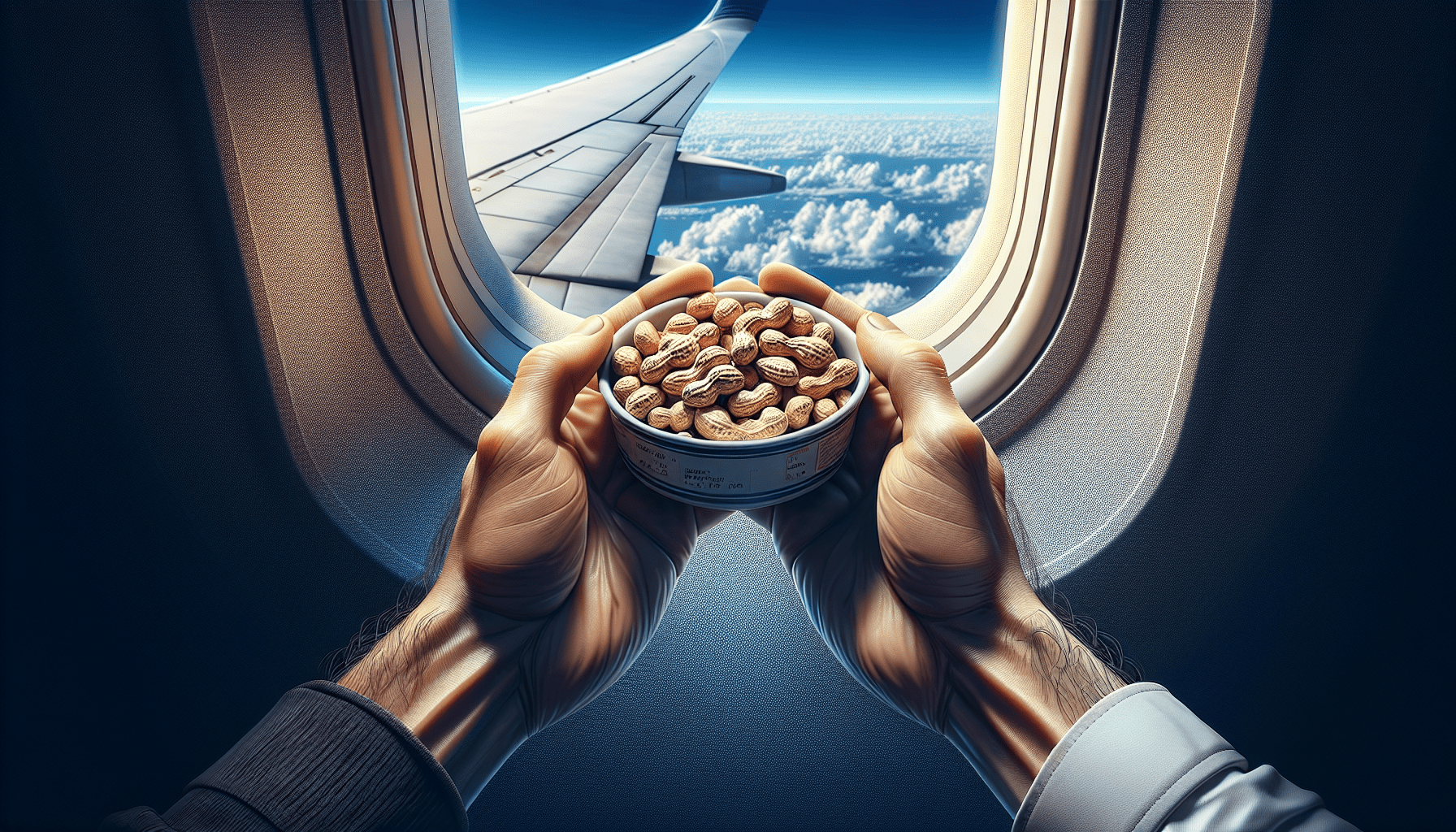
Shop These Accessories for a Comfortable Trip
What About People With Peanut Allergies?
According to the American Academy of Allergy, Asthma & Immunology, between 1-2% of Americans have peanut allergies. For these folks, flying can become a stress-inducing activity. Fortunately, there are some measures you can take.
Contacting the Airline in Advance
One option is to contact the airline ahead of your flight. Some airlines may offer accommodations such as priority boarding so you can wipe down your seat and tray table. A few might even create a buffer zone around your seat. However, as Barbi notes, “most U.S. carriers do not make special accommodations for those with nut allergies.” Booking with an airline that does can be a good alternative.
Packing Wisely for Your Flight
If you have severe peanut allergies, your hand luggage becomes a crucial part of your travel strategy. There’s no way to control what other passengers bring on board, but you can minimize your own risk of exposure.
Essential Items for Allergy Management
Barbi emphasizes the importance of traveling with an EpiPen. The Transportation Security Administration (TSA) allows larger quantities of medically necessary liquids, gels, and aerosols, including EpiPens. You’ll need to declare your epinephrine pen to the TSA officer during the security check.
Here’s a quick reference table for items to bring:
| Item | Notes |
|---|---|
| EpiPen | Declare to TSA, keep in your carry-on. |
| Medical Plan | Keep a copy of your medical plan and a note from your doctor. |
| Prescription Labels | Keep original labels on your medications. |
| In-flight Meals | Consider ordering meals for dietary restrictions or bring your own. |
Eating on the Plane
When it comes to in-flight meals, you might not always get a nut-free guarantee. It’s often safer to bring your own food. Solid foods and liquids in small quantities (within TSA’s 3.4-ounce limit) are generally allowed on planes.
Bringing Your Own Snacks
Packing your own nut-free snacks can be a reassuring option. This way, you have full control over what you eat and can avoid accidental exposure to allergens. It’s a small but significant step towards a safer journey.
Final Thoughts
While peanuts have a long history in aviation, the evolving landscape of allergy awareness means that airlines have shifted their policies. Though most U.S. airlines don’t provide extensive accommodations for peanut allergies, you can take steps to ensure your safety and comfort.
Checking Airline Policies
Always check your airline’s specific policy regarding peanut allergies before flying. Some airlines may offer better accommodations than others, so this information can influence your choice of carrier.
Practical Tips for Flying with a Peanut Allergy
- Bring an EpiPen: Never travel without it. Declare it to TSA and keep it easily accessible.
- Stay Informed: Know your airline’s policy on peanut allergies and take advantage of any accommodations offered.
- Pack Your Own Food: Bringing your own snacks ensures you don’t have to worry about potential allergens in in-flight meals.
- Wipe Down Surfaces: Use sanitizing wipes on your seat and tray table to minimize any residue left by previous passengers.
The Bottom Line
So, are you allowed to eat peanuts on a plane? Generally, yes, but whether you should depends on your awareness and consideration for fellow passengers. With a little planning and precaution, you can navigate the skies safely, whether you’re a peanut lover or someone with a severe allergy.
Travel might be unpredictable, but your safety and peace of mind don’t have to be. Armed with this knowledge, you’re now better prepared for your next journey. Safe travels!
Shop These Accessories for a Comfortable Trip



